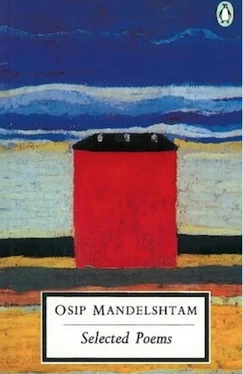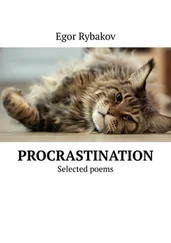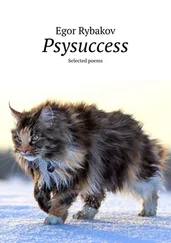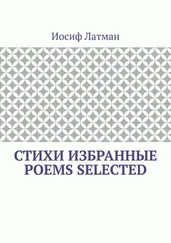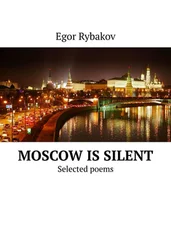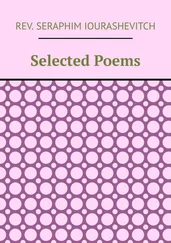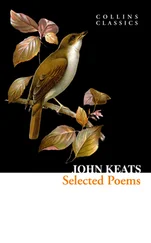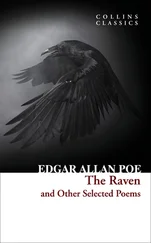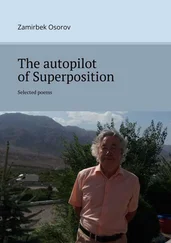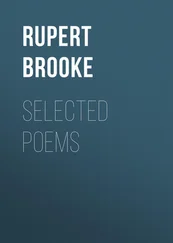Osip Mandelshtam - Selected Poems
Здесь есть возможность читать онлайн «Osip Mandelshtam - Selected Poems» весь текст электронной книги совершенно бесплатно (целиком полную версию без сокращений). В некоторых случаях можно слушать аудио, скачать через торрент в формате fb2 и присутствует краткое содержание. Город: London, Год выпуска: 1991, ISBN: 1991, Издательство: Penguin Books, Жанр: Поэзия, на английском языке. Описание произведения, (предисловие) а так же отзывы посетителей доступны на портале библиотеки ЛибКат.
- Название:Selected Poems
- Автор:
- Издательство:Penguin Books
- Жанр:
- Год:1991
- Город:London
- ISBN:978-0-14-196539-0
- Рейтинг книги:4 / 5. Голосов: 1
-
Избранное:Добавить в избранное
- Отзывы:
-
Ваша оценка:
- 80
- 1
- 2
- 3
- 4
- 5
Selected Poems: краткое содержание, описание и аннотация
Предлагаем к чтению аннотацию, описание, краткое содержание или предисловие (зависит от того, что написал сам автор книги «Selected Poems»). Если вы не нашли необходимую информацию о книге — напишите в комментариях, мы постараемся отыскать её.
Selected Poems — читать онлайн бесплатно полную книгу (весь текст) целиком
Ниже представлен текст книги, разбитый по страницам. Система сохранения места последней прочитанной страницы, позволяет с удобством читать онлайн бесплатно книгу «Selected Poems», без необходимости каждый раз заново искать на чём Вы остановились. Поставьте закладку, и сможете в любой момент перейти на страницу, на которой закончили чтение.
Интервал:
Закладка:
By 1913, Mandelshtam was an original thinker as well as a mature poet. What is implicit in his poetics – the poet’s ability to bridge time, to recreate past experiences in new languages – was made explicit in a daring series of intellectual forays. His essay on François Villon establishes a model for the poet as victim of the state; another essay, ‘On the Addressee’, makes imaginary conversation the basis of poetry; an essay on the first Russian thinker of note, the historiosopher Pyotr Chaadayev, argues the cyclic nature of history, for the need to interpret present experience as recognition of the past. These essays establish the role of the poet in history; they insist on continuity, on poetic language as a universal means of expression, constantly refined: they make Mandelshtam a proponent of Neoclassicism, which is to infuse and deepen his poetry for another twenty-five years, to an extent matched only in the work of T. S. Eliot.
The classical emphasis in Mandelshtam’s Stone marked him apart from his fellow Acmeists: his lyrics have none of the egocentric, biographical core that we find in the best and worst of Gumilev and Akhmatova. Mandelshtam was even further in spirit and language from the Symbolists, whether the imprecise musicality of Blok or the occult rhetoric of Andrey Bely, while the dynamic barbarism of the Futurists, such as Khlebnikov and Mayakovsky, who were now denouncing European tradition in favour of experimental, aggressive poetics, could not have been more alien to him. Like Khodase-vich, Mandelshtam had to wait for recognition simply because poets who were out to shock by self-dramatization or provocative manifestos drew more critical fire.
The outbreak of war brought unexpected roles to the Acmeists. Very few Russian poets, however, took refuge in patriotic self-immolation: Gumilev was virtually the only poet to expose himself to front-line bullets. The Acmeists were too heavily committed to a united European culture to feel anything but horror at the disintegration of centuries-old contours and unities. The omens of 1914 and 1915, the smouldering peat bogs around Petrograd (as St Petersburg became), the death of Russia’s first challenger to Beethoven, Skry-abin, seemed harbingers of an apocalypse; fire, the extinction of the sun and of genius. Rachel’s shattering performance in Petrograd of Racine’s Phèdre left a deep impression, as though not just a mythological queen, but a sun goddess and an entire culture were perishing. Premonitions turned Akhmatova into a Cassandra, made even the warrior Gumilev into a ‘poète maudit’ and gave the last poems of Mandelshtam’s Stone an insight into historical necessity which made him from now on the most contemporary and, in the deepest sense, the most political poet in Russia.
Like Mayakovsky, Khlebnikov, Blok and almost every Russian poet liable for service, Mandelshtam got exemption from the army. His perambulations over Russia and its Black Sea territories began: a brief affair with Marina Tsvetayeva led him to the Crimea, the setting for much of his later poetry, Russia’s only overlap with the ancient Hellenic world, and then to Moscow, which Mandelshtam, like Baratynsky a hundred years before him, could not help fearing as a threateningly medieval Asiatic world. The disasters of war and the outbreak of revolution, culminating in the irreversible October 1917, drove him not only to flight but to acts and words of desperate heroism: his protests to the head of the Cheka, Dzerzhinsky, against arbitrary terror, his willingness to collaborate in the highest sense, but not in the lower, with such amenable Bolsheviks as Lunacharsky and Bukharin, match the poems of his that greet the revolution as the ‘twilight of freedom’, ‘the unbearable weight of power’. He not only mourns, but interprets and admonishes.
Mandelshtam begins to detect cycles in Russian poetry, too: the events of 1917 and 1918 lead him back to his precursors in the eighteenth century. Marina Tsvetayeva had acclaimed him as a ‘young Derzhavin’: he follows Derzhavin in his treatment of the dying Petrograd as a city about to pass into Elysium, ‘transparent Petropolis,/Where Proserpina rules over us’. The poetry of Tristia aligns with the Petersburg themes of doom so powerfully stated in Pushkin’s Bronze Horseman and in Dostoevsky’s novels; only now Mandelshtam has allied them to imagery of the black sun that pervades French tradition, from the lines he attributes to Phèdre, ‘With my black love I have sullied the sun’, to Nerval’s ‘Soleil noir de la mélancolie’.
He was never again allowed by fate or the authorities to reestablish himself in Petrograd/Leningrad: for the rest of his life it remained what Rome was to Ovid, a dying homeland, the centre of a lost empire. Mandelshtam never proclaimed allegiance to a new proletariat order; he refused to redirect his poetry to the masses; his peregrinations during the revolution to the Crimea under the Whites or to Georgia under the Mensheviks were suspect; his loyalties to poets executed, like Gumilev, or exiled, like Vyacheslav Ivanov, condemned him to homelessness and eventually exile. In the eyes of the Soviet establishment he was a shadowy, even a shady figure: and the frequency of the word ten’ , shade, shadow, in his poetry must be significant.
The Crimea, where Mandelshtam, like so many Russian writers, fled for warmth and food, became a fragile dreamworld. Here the White armies hung on until 1921 and it was possible to drink milk and honey, to relegate the reality of the north to the status of a recurrent nightmare. The title poem and the central poems of Tristia oppose a carefully nurtured Hellenic dreamworld of sensuality to a threatening outside temporal force: these poems re-enact an opposition between internal time (in Russian, vek ) and external time ( vremya ), very like the contrast we find in another assimilated Jew, Marcel Proust.
The sensuality of Tristia gives Mandelshtam’s love poetry an almost palpable sonority: in 1919, he met Nadezhda Khazina; in 1921 he married her and a life-long dependence began, surviving his periodic infatuations which inspired some of the richest love poetry in the language. Like Catullus, whom Mandelshtam had studied very closely (despite failing his Latin examinations at university), he is moved by love when most threatened by death. The poem Tristia deals with the pain of separation from physical love, from life and from inspiration and from a culture as though they were all variants of one ‘science of separations’. It is the culmination of the Russian elegy, which amounts to the major lyrical genre of the language, celebrating loss not merely of life but of love and language. Thus the first stanza’s ‘nocturnal laments when hair flows loose’ are linked to the political betrayal implicit in the ‘cock’s clamour’ of the second stanza and the poetic frustration – ‘How threadbare the language of rejoicing!’ – in the third stanza. After linking all three levels of experience – amatory, political and poetic – as firmly as Ovid ever had, Mandelshtam is able to draw the first of a number of statements on the separate role of men and women in tragic times. ‘Wax is for women what bronze is for men,’ he concludes, an idea which grows out of the different roles of himself as a victim and Akhmatova as a survivor, both Cassandra and Antigone, and amounts to a completely classical tragic philosophy. It holds true until the year before his death, when he addresses his young friend Natasha Shtempel with an almost unbearable summons: ‘There are women who are natives of the sodden earth:/Their every step a hollow sobbing,/Their calling to accompany the risen’.
The Neo-classical craftsmanship of Tristia was greeted by sympathetic critics as ‘the overcoming of Symbolism’; in fact, Tristia’s precision of tone is a preparation for the more starkly expressed revelations of the poetry of the 1930s. In 1922, however, Mandelshtam’s achievement was more noticeable than a decade earlier: the Symbolists had died, emigrated or abandoned poetry; surviving Futurists, such as Mayakovsky, had lapsed for a while into versifying propaganda; the new proletarian poets were disappointing in their incompetence. Only Pasternak’s My Sister Life – ‘a cure for tuberculosis’, as Mandelshtam generously acclaimed it – made a greater impact than Tristia , for Pasternak flooded his readers with sense impressions, private allusions and breathless inventiveness, quite unlike the orderly Hellenic imagery, the elegiac cadences and traditional sonorities of Mandelshtam. Before his execution, Gumilev had become disorientated enough to develop into a Symbolist; Akhmatova, on the verge of silence, had reduced poetry to austere aphorism: Mandelshtam was the only recognizable major Acmeist poet still writing.
Читать дальшеИнтервал:
Закладка:
Похожие книги на «Selected Poems»
Представляем Вашему вниманию похожие книги на «Selected Poems» списком для выбора. Мы отобрали схожую по названию и смыслу литературу в надежде предоставить читателям больше вариантов отыскать новые, интересные, ещё непрочитанные произведения.
Обсуждение, отзывы о книге «Selected Poems» и просто собственные мнения читателей. Оставьте ваши комментарии, напишите, что Вы думаете о произведении, его смысле или главных героях. Укажите что конкретно понравилось, а что нет, и почему Вы так считаете.
